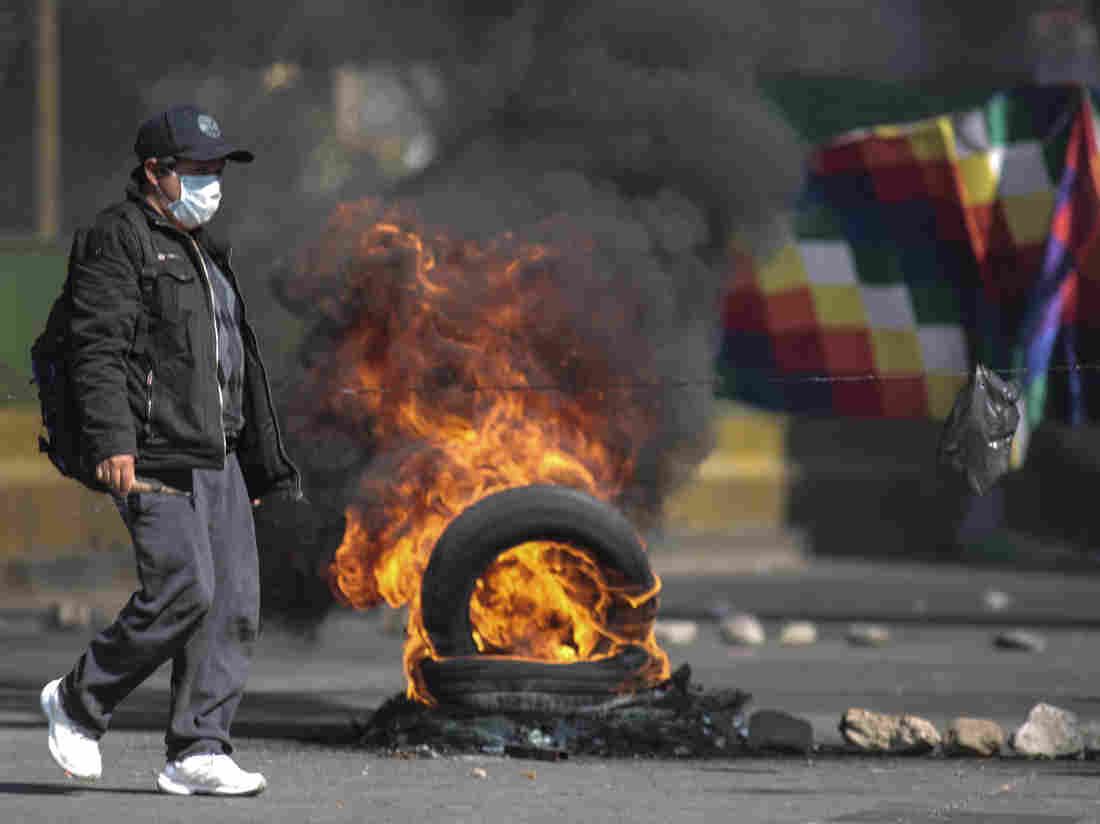RIO DE JANEIRO, BRAZIL – Three weeks before the presidential and parliamentary elections in Bolivia, violent incidents by supporters and opponents of the former ruling party Movimiento al Socialismo (MAS) are escalating during election campaign events.

Last Thursday, the police were forced to intervene in the provincial town of Montero in the Santa Cruz department to prevent a further escalation of the conflict between the two parties. A few days earlier, a MAS youth organization event in El Alto was attacked by unknown individuals with tear gas grenades.
Luis Arce, the MAS presidential candidate, commented on his Twitter: “We condemn the use of violence and demand guarantees for the exercise of the democratic right of peaceful expression. Our solidarity goes out to the victims of the attacks, including children.” The former Foreign Minister of the interim government, Diego Pary, also condemned the Montero events and called on the international community to denounce the violence against MAS.
A week earlier, the United Nations High Commissioner for Human Rights in Bolivia had already appealed to refrain from using violence during the election campaign and instead focus on tolerance and mutual respect. Over the past three weeks, nine violent incidents against political parties of different colors were reported in the cities of Potosí, Sucre, La Paz, El Alto, Oruro, Cochabamba and Santa Cruz.
According to the most recent poll with data from the first week of September, the MAS candidate Luis Arce has a 40.3 percent share of the vote, ahead of Carlos Mesa of the Civic Community (Comunidad Ciudadana) with 26.2 percent and Luis Fernando Camacho of We Believe (Creemos) with 14.4 percent. A telephone survey conducted by the Ciesmori polling institute during the same period reached similar results. After subtracting void votes, Arce would achieve the required ten percent lead over the runner-up and thus win in the first round.
Given these polls, the president of the de facto government, Jeanine Áñez, withdrew her candidacy for the Alliance Together (Alianza Juntos) one month before the October 18th elections. She justified her decision by mentioning the danger of the votes being divided among several MAS opposition candidates and called on the opposition to unite. Both Mesa and Camacho are holding on to their candidacies.
On Saturday, at a press conference in the city of Trinidad, Áñez again called for “defense of democracy” so that the 14 years of MAS government would not be repeated and that Bolivia would not follow the Cuban and Venezuelan examples.
Meanwhile, a growing number of people fear a scenario similar to last November’s post-election events.
In the aftermath of the presidential elections, in which Evo Morales emerged victorious, the right-wing opposition and the Organization of American States (OAS) accused Bolivia of electoral fraud. This led to violent riots. After the military and police withdrew their support for him, Morales fled into exile.
The OAS was unable to provide conclusive evidence of irregularities in the election results. After detailed investigations, many international independent analysts consider the allegations of fraud against ex-President Morales to be invalid and unsubstantiated.
However, the de facto right-wing government is accused of persecuting MAS supporters or even banning the party. International organizations have repeatedly reported human rights violations.
As recently as last Wednesday, Silvia Sandoval Peredo, head of anti-corruption for the Special Police Unit for Fighting Crime (FELCC), released three reports that expose illegal police practices in the prosecution of MAS politicians.
In the eleven cases currently being investigated by the prosecutor’s office in La Paz, procedural violations have been repeatedly committed. According to the prosecutor, these indications have not been addressed either by the General Command of the police or by the government. According to Sandoval, members of the interim government and Lieutenant Colonel Iván Rojas, the FELCC’s national director, colluded to initiate the political proceedings.

